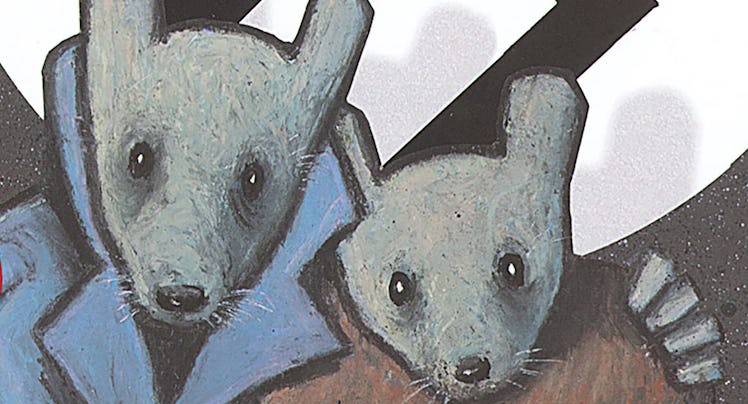The Infuriating Reason a School Board Banned This Brilliant Holocaust Graphic Novel
The misguided censoring of this book is as tragic as it is bonkers.

On January 10, 2022, the McMinn County School Board in Tennesse, banned Art Spiegelman’s graphic novel, Maus, from its school library. The vote was not close — all 10 members of the school board voted to get the book out of the school. The author, Art Spiegelman, told CNBC he was “baffled” by the decision. And, parents everywhere should be just as confused.
In case you missed this 1991 book, Maus tells the story of Jews fleeing the Holocaust during World War II. Artist and writer Art Spiegelman creatively rendered the Jews in the story as mice and some of the Nazis as cats. Versions of Maus were serialized in 1981 before the entire story was collected in book form in 1991. Because of the hyperbolic technique of rendering characters as animals, the power of Maus is clear from one glance: For tweens and teens, this memoir of the Holocaust is potentially more powerful than a straightforward documentary. By heightening the depiction of people to anthropomorphized caricatures, the evil of the Nazis is unforgettable.
This isn’t to say you should read Maus to your toddler. The audience for this book is certainly 10 and up. But, arguably, that’s true a lot of Holocaust material. However, the reason the McMinn County School Board banned Maus has nothing to do with whether or not older children should read it. Instead, they fixated on something truly bizarre.
According to reports, the reason this school board banned Maus — from an EIGHTH GRADE curriculum — was because of its depiction of nudity. The exact complaint was: “concerns about profanity and an image of female nudity in its depiction of Polish Jews who survived the Holocaust.”
The nudity in question was focused on a particular Holocaust survivor, and, in reality, this was based on Spiegelman’s own mother. What seems so bizarre is this school board was focused on the depiction of nudity, rough language, and violence, rather than the context with which these images were shown. According to CNBC, one board member, Tony Allman, said, “It shows people hanging, it shows them killing kids, why does the educational system promote this kind of stuff, it is not wise or healthy.”
The idea that a book about the Holocaust is somehow promoting the actions of the Holocaust by depicting the events is not only a terrible take but horrifying that someone in education doesn’t understand this distinction. According to reports, some educators, including an assistant principal named Julie Goodin, responded smartly by saying, “I can talk of the history, I was a history teacher and there is nothing pretty about the Holocaust and for me, this was a great way to depict a horrific time in history.”
Many journalists and pundits have suggested the school board’s actions to ban the book likely stem from antisemitism, but even if that’s not the case, the stated reasons for the ban are scary enough. People with the power to shape the education of kids looked at content without context and made a decision rooted in anti-intellectualism and ignorance. Education isn’t about shielding kids from painful truths. It’s about helping contextualize those truths. Maus is one of the best examples of how horrible moments from history can be sublimated into profound, life-changing art. And, decision-makers who feel otherwise are edging toward the horrible book-burnings of the Nazis themselves.
You can buy Maus is at all sorts of booksellers, including right here.
This article was originally published on